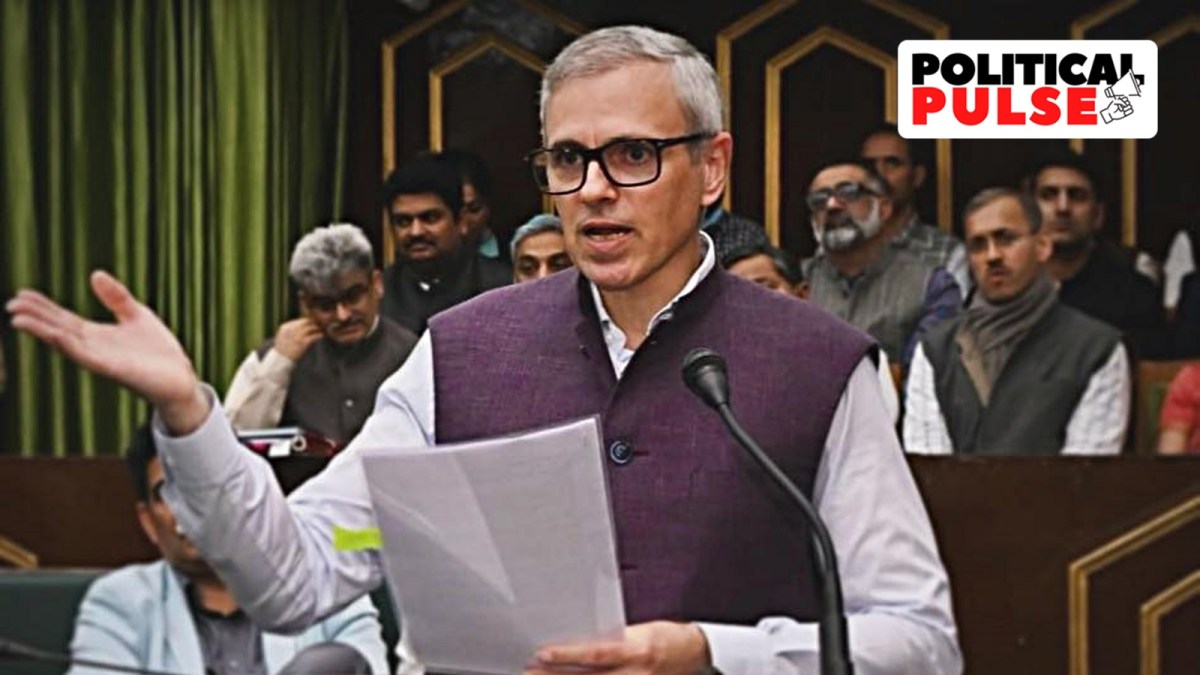Fighting fire on multiple fronts over the charge that it is bending over backwards to keep the Centre happy, the National Conference government has now burnt its hands with an affidavit in the High Court justifying enhanced reservations in Jammu and Kashmir.
The increase in reservations to 70% in government jobs and seats in educational and professional institutions had been part of the changes ushered in J&K post the abrogation of Article 370. Given the opposition to it, the NC in its Assembly poll manifesto had promised to review the new reservation policy, and formed a three-member Cabinet sub-committee to examine the issue. The panel was given six months, or till the end of June, to file its report.
In its affidavit to the High Court, not only did the J&K Social Welfare Department justify the new quota format, it also didn’t make a mention of the sub-committee. J&K Social Welfare Minister Sakina Itoo, incidentally, is a member of the sub-committee.
Before J&K lost its special status, 43% of seats in the erstwhile state were reserved for underprivileged classes, including Scheduled Castes, Scheduled Tribes and residents of backward areas.
In March last year, just before the Lok Sabha elections, the Lt Governor-led J&K administration amended the J&K Reservation Act of 2005, substituting the words “Pahari ethnic people” with “Pahari-speaking people” – thus expanding the quota to anyone who could speak the language. When the Gujjar and Bakerwal communities that already had ST status opposed this, the administration announced an increase in the ST quota from 10% to 20%. The overall quota now stood at 70%, including 3% horizontal reservation for ex-servicemen.
The amendment was seen as an attempt by the BJP to consolidate electoral gains, and in their Assembly poll manifestos, both the NC and Peoples Democratic Party (PDP) promised to review the reservation policy if they came to power.
In December last year, protests were held in Srinagar over the unfulfilled promise, with a sit-in organised outside Chief Minister Omar Abdullah’s residence. Among the protesters was NC MP Aga Ruhullah Mehdi, who has been charting a line independent of the party’s official stand on issues.
Story continues below this ad
It was following these protests that the Omar government announced the Cabinet sub-committee to examine the issue, including Health, Education and Social Welfare Minister Sakina Itoo, Jal Shakti and Forest and Ecology Minister Javed Rana, and Minister for Information Technology and Youth Services and Sports Satish Sharma.
The composition of the sub-committee itself was a reflection of the predicament that the NC government faces – its poll promise notwithstanding. Rana and Itoo both belong to communities that enjoy reservations being, respectively, a Gujjar leader and a resident of the backward Kulgam area.
Any decision on the reservation policy is likely to invite discord within the NC’s ranks with at least 11 MLAs of the ruling alliance, including the Congress, from reserved categories and three from backward areas. In fact, NC MLA Abdul Rahim Rather, now J&K Assembly Speaker, was instrumental in declaring many villages of his constituency as backward despite some of them not making the cut as per the criteria.
One of the two NC MPs, Mian Altaf Ahmad, also belongs to the reserved Gujjar community.
Story continues below this ad
The massive mandate that the NC secured in the last Assembly elections was, in fact, due to its unprecedented performance in Jammu region’s Pir Panjal, which has a huge proportion of STs.
With Gujjar and Pahari leaders indicating that they will fight tooth and nail against any change in the reservation policy that could be to their disadvantage, the NC government is treading carefully.
Even NC rivals have been careful about their words, and have started talking about ‘pro-rata’ reservations based on population share. In May last year, when PDP leader Waheed Para posted on X against the enhanced reservations, he was forced to delete it soon after – apparently given the impending parliamentary elections.
Speaking to The Indian Express, Para said “merit has been eroded in J&K”. “We say that reservation has to be rationalised as per the population… This (the controversial enhancement of reservation) was basically done by the BJP with the objective of creating a strife among communities and dividing people.”
Story continues below this ad
The government came to power “with the promise to undo what the BJP had done”, Para said, adding: “It (the rationalisation of reservations) just needs one government order, it doesn’t need a Bill or a law.”
Requesting anonymity, an NC leader acknowledged anger over the Omar government’s “inability to make a quick decision”, but said its hands were tied. “We understand that people are angry, they want us to revisit the reservation policy. However, it is not an easy decision. We have to take all the stakeholders along and that will take time. We want an amicable settlement where every community feels it is a win-win.”
NC sources said their hope is that the High Court will announce its order soon, thus taking the matter out of its hands.
In fact, the CM hinted at this at the time of the sit-in outside his residence. Mentioning the government sub-committee, Omar said the reservation policy had been challenged in court and “we will, of course, be bound by any judgment when the final legal options have been exhausted”.
Story continues below this ad
The affidavit filed by the government in court, however, has put it in a spot. Party leaders have claimed the affidavit was filed “casually” at the bureaucratic level, but in a bid for damage control, Itoo promised a new affidavit in court if needed.
